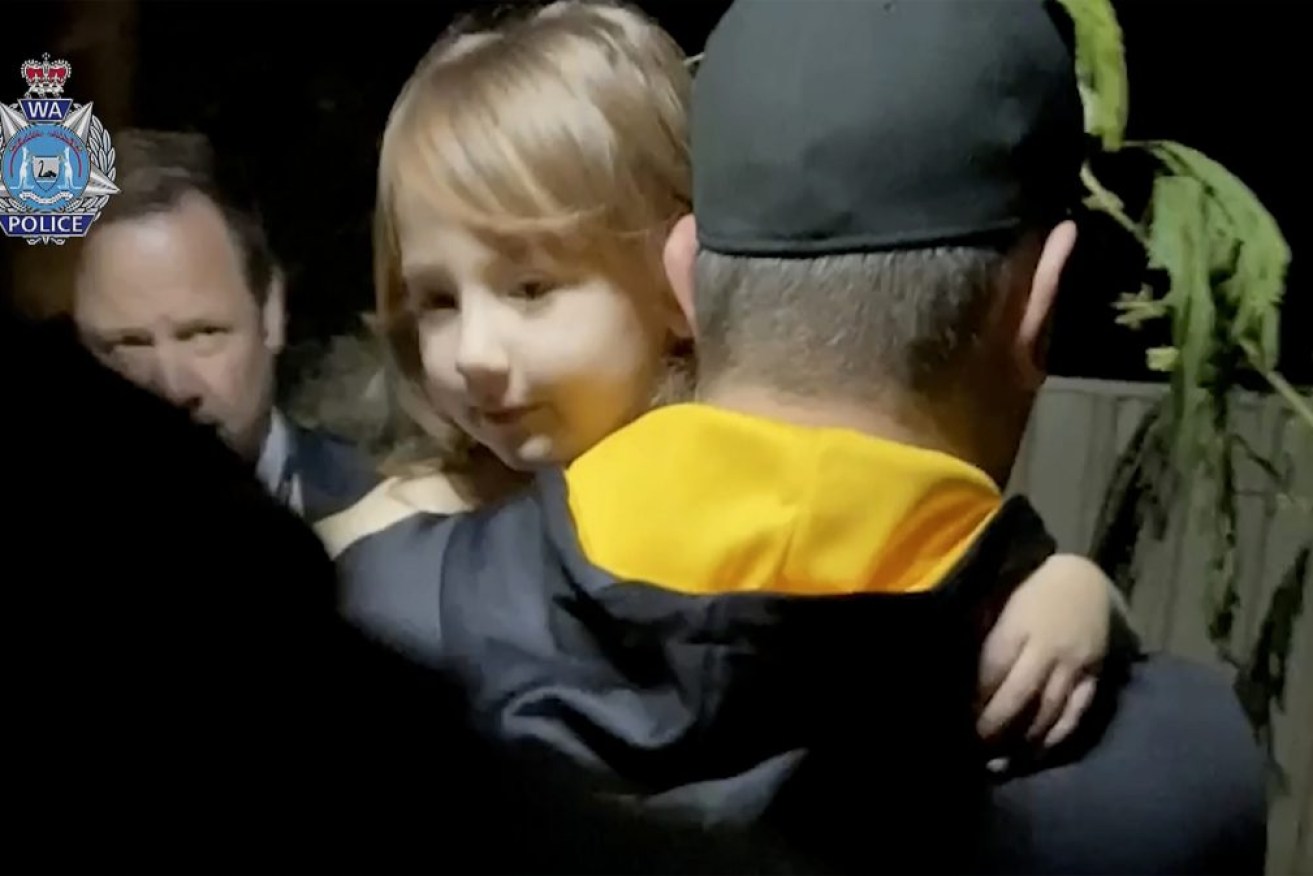Cleo Smith kidnapper jailed
The man who snatched four-year-old Cleo Smith from her family tent at a remote West Australian campsite and held her at his home for 18 days has been sentenced to 13 years in prison.

A police officer carries Cleo Smith from the home where she was kept by her kidnapper in 2021. Photo: WA Police va AP
Terence Darrell Kelly, 37, confessed to impulsively snatching Cleo from her family’s tent at the remote Blowholes campsite on October 16, 2021 while high on methamphetamine.
He drove Cleo 75km southeast to his Carnarvon home and kept her there for 18 days before police found her alone in a bedroom, playing with toys, in the early hours of November 3.
The dramatic rescue and Cleo’s confirmation of her name was captured by an officer’s body-worn camera and gained global attention.
Kelly was arrested nearby about the same time.
He sat silently in the dock wearing a green shirt as details of the abduction were revealed, with Cleo’s mother Ellie Smith and stepfather Jake Gliddon in the public gallery.
A loner obsessed with dolls who created Facebook profiles for his own “fantasy children” and communicated with them, Kelly left Cleo home alone for extended periods while he went shopping and visited relatives.
The court heard she spent much of that time trapped in a bedroom which Kelly had modified to lock from the outside.
Aware a major search had been launched for Cleo, Kelly put the radio on loudly to drown her out.
In a police interview outlined by Chief Judge Julie Wager, Kelly said he knew what he had done was wrong.
He said he had played with the girl but also became angry and “roughed her up a bit a few times”.
“I wasn’t planning to keep her forever, you know. I was getting guilty every day and it was just more weight on my shoulders,” Kelly said.
The court heard Kelly had arrived at the campsite, 960km north of Perth, looking for items to steal before coming across the Smith family’s two-room tent, where Cleo and her younger sister were asleep in a separate compartment.
Kelly made the opportunistic decision to take Cleo, whose parents were sleeping nearby.
He lifted her up along with her sleeping bag and carried her to his car in “relative silence”.
Cleo’s parents awoke to find her missing hours later, “not knowing if she was alive or dead for the next 18 days”.
“They didn’t know what happened to her or if she would ever return,” Judge Wager said.
“(They) were sad, scared and confused. They described being too fearful to sleep … feeling completely empty and broken.
“They stayed at the place that caused them so much pain, hoping their little girl would be located.”
Describing the fear and distress caused to Cleo and her parents as “immeasurable”, Judge Wager sentenced Kelly to 13 years and six months imprisonment.
Kelly, who received a discount for his early guilty plea, will be eligible for parole after serving 11-and-a-half years.
“Being separated without any explanation is distressing for a four-year-old child,” the judge said.
“But 18 days without contact or explanation and with hours totally on her own and no access to the outside world, would have been very traumatic for the child.
“In the world of a four-year-old, a day is a long time … 18 days is a very, very long time indeed.”
Kelly later told police he had injected methamphetamine shortly before arriving at the Blowholes campsite.
The court heard the Yamatji man had suffered significant childhood trauma and deprivation.
He was abandoned by his parents aged two and his maternal aunt who adopted him reported having found alcohol in his baby bottle.
Judge Wager accepted a diagnosis of complex developmental and personality dysfunction.
Had he not been disinhibited by illicit drug use, he would have been “far less likely” to commit the crime, she said.
-with AAP




